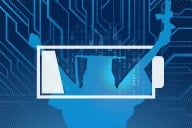You have /5 articles left.
Sign up for a free account or log in.
A greater percentage of social scientists today feel that their academic freedom has been threatened than was the case during the McCarthy era.
That finding -- from Neil Gross, an assistant professor of sociology at Harvard University -- was among a series of pessimistic papers presented at a forum on academic freedom Tuesday at the annual meeting of the American Sociological Association.
Gross surveyed social science professors last year about whether they had felt that their academic freedom was threatened, and found that about one-third did. In 1955, Paul Lazarsfeld, the late Columbia University professor, did a similar survey and found only one-fifth of professors feeling affected by attacks on their academic freedom.
There are many explanations for the increase, which may not mean an increase in the likelihood of a particular social scientist facing a threat to his or her academic freedom, Gross said. For example, more faculty members may be on the extremes of the political spectrum and thus be targets. Or people may be defining academic freedom in different ways. But regardless, he said, the one-third figure was “alarming.” While attacks on academic freedom and intellectuals are nothing new in American history, he said, such attacks tend to be cyclical and the evidence suggests that we are in “an up cycle” in terms of such attacks.
Gross, who has done surveys of public opinion on attitudes about academic freedom, said that one cause for the difficulties faced by academics today is the “disjuncture” between public and academic attitudes about academic freedom. He noted that a survey of the public for the American Association of University Professors last year found that solid majorities support tenure, but that many also believe that in some cases, colleges should be able to fire professors for political views such as belonging to the Communist Party or defending the rights of Islamic militants. Clearly, he said, the public doesn't understand academic freedom the way professors do.
Other speakers saw other reasons for concern about the state of academic freedom, which the sociology association recently created a committee to study. Lisa Anderson, a professor of international relations at Columbia University, said that she likes to think of herself as an optimistic person, but finds herself worried that attacks on academic freedom are getting worse and are likely to continue along those lines. Anderson just finished 10 years as dean of Columbia's School of International and Public Affairs, and the last few years of her tenure found her among the Middle Eastern studies scholars who were regularly criticized by some pro-Israel groups for alleged anti-Israel or anti-American bias. The attacks have “deeply damaged the research community,” Anderson said.
Anderson said that young scholars of Middle Eastern literature or history (she stressed that she wasn’t talking about those who study policy or the current political climate) are finding themselves “grilled” about their political views in job interviews, and in some cases losing job offers as a result of their answers.
And she said that universities are increasingly nervous about getting caught up in the debate. In September, a furor erupted over an invitation from the school of which Anderson was dean to Iran's president, Mahmoud Ahmadinejad, to speak on campus while in New York for the opening of the United Nations session. After affirming the right of Anderson and her school to make such an invitation, Columbia announced that "logistical" issues would make the visit impossible and the speech was called off. Visits of heads of state are now vetted for political reasons, she said, calling the statements about security concerns associated with the Iran visit a “euphemism” for what really took place.
Outside groups that are critical of those in Middle Eastern studies, she said, are shifting the way scholarship is evaluated. “People are reading work not for what it says, but for who it serves,” she said.
Those outside Middle Eastern studies should not assume that they are immune, she said. Anderson pointed to the squelching by the Bush administration of research on climate change, or to the political attacks on evolution in several states as examples of scholars being attacked for their views.
Cat Warren, associate professor of English at North Carolina State University, explored another issue -- how definitions of academic freedom are changing in ways that she fears limit faculty rights. Warren pointed to this year's Supreme Court decision weakening federal laws governing election spending. While the decision was not explicitly about academic freedom, Warren said, it may end up defining it. That’s because the Supreme Court accepted the idea that money is free speech and limits on money in campaigns are the same as (unconstitutional) limits on free speech.
Warren cited a series of debates in academe -- at the University of California over a major project in which the energy giant BP is providing $500 million for research and a discussion over proposed bans on tobacco industry support for research, and at North Carolina universities over proposed gifts from the John William Pope Foundation to support the study of Western civilization. In all of these debates, some faculty members objected to the outside funds, and in all of these cases, administrators (and in some cases faculty groups too) have cited academic freedom to justify taking the funds. Blocking the funds would block the free flow of ideas that would come from research or curricular projects supported by the funds, the argument goes.
The problem with that argument, Warren argued, is that it views the money as speech alone. In all of these cases, she said, professors have had concerns about issues of academic integrity or the direction of the curriculum or university priorities -- and felt that accepting the grants would in effect decide questions of policy that faculty should debate. The “pious language” about academic freedom, she said, has become a “great siliencing mechanism” to limit faculty input.








